
When I first went to London in 1965, Bess Coleman - one of the Beatles' press officers and one of my co-writers - introduced me to Shel Talmy, a five star general in the British invasion. I was anxious to meet the legend who discovered, inspired and produced the Who, the Kinks, Chad & Jeremy and the Easybeats. About an hour before I met him, I was shocked to find out that he was a fellow American! When I knocked on his apartment door, in fashionable Knightsbridge, his beautiful assistant led me down a long hallway that was filled on both sides with more gold singles and albums than I'd ever seen in one place! As I sat sipping tea in his office, I heard someone playing a guitar and singing in the other room. The door opened, Shel introduced himself, as well as the singer I heard through the walls, Cat Stevens, who was there to play a couple of his new songs. Over the years Shel and I became good friends. He was one of the few people I could play a song for and get some good constructive criticism. Here he shares some stories and insights in a rare interview...
Artie Wayne: When did you go to England for the first time?
Shel Talmy: In 1962.
So you were there a year and a half before the English invasion.
Absolutely! I was there before it happened and actually came back a year after. I tried to tell everybody in the States there was about to be a British invasion, but since I was about 22 at the time, they just patted me on the head and said, "Sure kid, now go away". [Laughter]
When you were in England the first time, were you producing records?
I was a recording engineer in Los Angeles at the original Conway studios, up on Highland and Sunset. The guy I was working for - who was English, his name was Phil Yen - had come over here and done extremely well, and it occurred to me that no one ever really had done it the other way. I was 21 and thought that my life was passing me by, so I decided to go to Europe before it all happened. I went for three months and took the precaution of taking some demos with me to see if I could produce records. I didn't have any bread and I thought I could earn some.
As an engineer?
No, I went with the intention of saying I'm a producer, not an engineer. I was fortunate enough to get Nick Venet, who was head of A+R at Capitol records, to say help yourself to some of the demos that he'd been working on. When I got to London, I had some names of people to look up, and the first one I went to see was Dick Rowe at Decca Records. I walked into his office and told him that I was, arguably, the greatest thing since oxygen was invented, in terms of producers, and played two demos that I had taken from Nick Venet. One was from the Beach Boys and the other from Lou Rawls!
[Laughter]
At that time there was no internet, no Google, and hardly any long distance! So by the time that they found out it was all bullshit, I already had a major hit with the Bachelors! The British being as gentlemanly as they are, never mentioned that they knew that I knew that they knew, etc., etc.
Did you ever discuss this with them later on?
No, I never did actually.
I understand, that sometimes you've got to go to extremes, but that was a pretty bold move!
It wasn't like I had a great reputation to protect. As a matter of fact,
before I went to England, I did have an offer to produce singles for Era
Records. I told them I was going away for three months, and would do it
for them as soon as I got back. Of course, I didn't come back for 17 years.
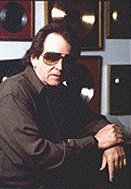 |
 |
During this time you said that you felt there was going to be a British music explosion around the world, but this was a time when English artists were still trying to emulate American artists. Now you were one of the first producers to work with acts who created songs from an English perspective and sang with their own accents. It must have been very exciting to know that you were venturing into uncharted territory.
I was fortunate in having both Ray Davies and Pete Townsend, two of the greatest songwriters of the '60s, at the same time. Ray was very prolific - he'd go home, write a dozen songs overnight, and bring 'em back. Not all were great, but some were. He'd sit down and play them to me. I'd say, "That one still needs some work...let's do this one immediately," etc., etc.
Having worked with you on several projects, I know how much importance you put on the song. There are a lot of artists today, who go into the studio with just a good melody, a great hook, or a partial lyric and think magic is going to happen.
It certainly doesn't work long term. I've always thought, and still do, that the song is 75% of the record. You can always have a bad artist with a great song having a hit record, but the reverse of that isn't true. The great thing about Pete and Ray was that every song was worked out beforehand, and rehearsed with the band, before we went into the studio. By the time we were ready to record, I was 90% sure of what it was going to sound like. I'd leave a little to the spontaneity of the studio.
We've all heard horror stories about artists who think they can go in the studio and write their songs, and they spend thousands and thousands of dollars...
I always thought that was really dumb!
It was the excess of the '70s and '80s. That's what threw the music business for a big loop. It just didn't make sense!
No, it was conspicuous consumption. They spent money because they could, and they were indulged by the record companies. The conclusion was inevitable.
A lot of the production techniques that you used, with the Who and the Kinks especially, were really innovative - the echo you used, the layering of instruments, the aural landscape you created - it all makes more sense to me, knowing that you have a background as an engineer.
The production didn't just happen, like a bolt out of the blue. I spent a lot of time in the studio working out how to isolate instruments, how to mike drums, how to do all kinds of stuff. When I arrived in London, I started recording drums using twelve mikes, which I had worked out how to do. Everybody in London, at the time, was only using four. They said I couldn't do that because it would phase. I said, "Just listen to it, see if it does."
It didn't, obviously, but speaking of phasing, this brings us to the next phase of our interview. I've asked the members of Spectropop, a '60s music forum, for questions they wanted me to ask you. The most unusual one, "Does Jimmy Page really have cloven hooves?"
[laughs] And a tail!!
Seriously, can you finally put an end to the Jimmy Page controversy?
[laughs] You mean did he play the solo on "You Really Got Me"? I've only been asked that about 5,000 times!
How does someone in your position convince an artist to let a session player come in a play a solo instead of them?
Because he didn't! Jimmy played rhythm guitar, because Ray Davies didn't want to sing and play guitar at the same time. It's as simple as that. Dave played all the solos, and is an extremely good guitarist. He's way underrated - no one ever talks about him as a guitarist.
Do you think Dave aspired to play better knowing that Jimmy was waiting in the wings?
That's not true - it never came up! Jimmy was there strictly to play
rhythm guitar. When I did the first album, I had John Lord playing organ,
no one's ever said, "Why'd you get John Lord in?" The drummer
we used wasn't Mick Avory, it was Bobby Graham, 'cause they didn't have
a drummer at the time. Why don't people ask me that for God's sakes?!
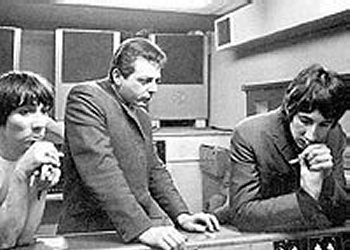 |
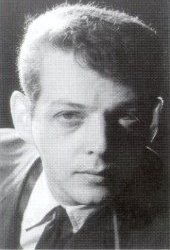 |
I guess that puts that controversy to rest. Now a question from our friend Joe Klein at Podcastvoiceguys. He says hello, and asks, "Why did you pick Chad and Jeremy at the time when you were known for working with rock acts?"
I was asked to do them by Noel Rogers. They were signed to United Artists Music and Ember Music in the UK, released on World-Pacific in the US. It was the only record I ever did where I didn't take a royalty . . . stupid. I did it for a fee, 'cause I needed the bread. I thought it was folk music, which I was very much into at the time.
It's interesting how the people in the US typecast everybody - you're mostly associated with rock acts.
That's true, I wish they didn't. There are all kinds of things that I've done, like jazz, blues, country and even comedy. And I'd like to do again.
Your website is really cool, by the way. There aren't many people who were there, during the time that you were, who could not only reflect on the music, the times, the fashion . . .
[interrupts] . . . but who were also not stoned and remember the '60s! [laughs]
I have a question from Paul Rusling, one of the men behind Radio Caroline, who has just started a new pirate radio station on the Isle of Man: "How difficult was it to get airplay for new artists in the UK in the '60s?"
Getting play has always been difficult. I employed a song-plugger, a promotion lady who was fabulous! She was especially good with the BBC. She was extremely attractive, and would get play when others would fail.
What about payola?
That was something I had absolutely nothing to do with! If there was payola, it was from the companies, and not from me. I'd like to think the hits I had didn't need payola. "You Really Got Me" shot up to the top of the charts in the first week!
How infuriating was it to make a great record and see it flop, because the record company wasn't behind it?
It's always infuriating! Obviously, I don't know any producers I've ever met who haven't had it happen to them at least once. You've got a record, and for whatever reason no body played the damn thing!
Paul Rusling has a 65% oldie/35% new format on his radio station. He loved an idea of mine called "Second Time Arounders", where a record from the past, that was never properly promoted, would be played for an audience that would appreciate it, perhaps even liking it enough to make it a "New Oldie". If you E-mail me a couple of your "Second Time Arounders", I'll get them to him. Can you name some records you did you thought should have been hits and never made it?
One I did with Chris White as a follow-up to "Spanish Wine"
that was a hit, called "Don't Look Down". Two with the regrouped
Small Faces with Steve Marriott singing lead called "Looking For
Love" and "Don't Lie To Me". Then there was one I did with
Ralph McTell called "Tequila Sunrise" I think would have been
a hit, but it never came out.
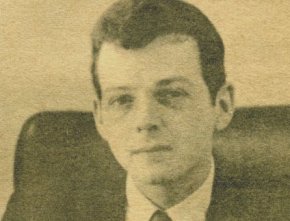
|
Okay, enough frivolity. I listen a lot to MTV and MTV2 and hear a lot of the "Talmy Touch" in recordings by the Killers, Fall Out Boy, Foo Fighters, Green Day. Even Nirvana.
I've been told that. I understand, both the Kinks and the Who inspired tons of bands, in the way they approached music, the way they played it, and the way they wanted it to sound. You can hear their influence in bands like Oasis and Coldplay.
You should be producing those acts!!!
I've been approached recently by companies with artists for me to consider, but nothing has knocked me out yet.
Where do you find new acts today?
On the internet, in chat rooms and podcasts. I was just on Brian Ibbott's 200th Coverville podcast, and I announced that I was looking for a group, who's signed and is looking for a producer. I asked for one mp3 of an original "World Class Hit Song". A lot of artists and musicians listen to his podcasts. Who knows what we're gonna find out there? I feel the law of averages is with me. I'm so convinced that I'm going to find something extraordinary, I've been investigating new recording studios and talking to some hot engineers.
It sounds like you're going to have your hands full.
No. YOU'RE going to have YOUR hands full Mr. Wayne, since you agreed to listen to ALL the mp3s that come in and forward the best to me.
Thanks Shel, for your confidence in me. Considering neither one of
us has ever passed on a hit song or a hit group, it's a safe bet that
everyone who sends in an mp3 is gonna get a good listen.
Special thanks to Spectropop, Mick Patrick, Paul Rusling,
Jana Barrington, Bill Chandler,
Joe Klein at
http://www.podcastvoiceguys.com,
Kingsley Abbott, Eddy Smit,
Brian Ibbott at http://www.coverville.com
and Alan V. Karr.
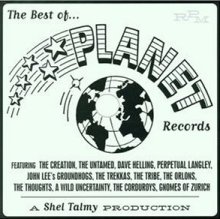 |
The Best Of Planet Records - A Shel Talmy Production:
http://tinyurl.com/zulsp
A Discography of Shel Talmy can be found at:
http://sheltalmy.com
Copyright 2006 by Artie Wayne: http://artiewayne.com
PRESENTED BY THE SPECTROPOP TEAM